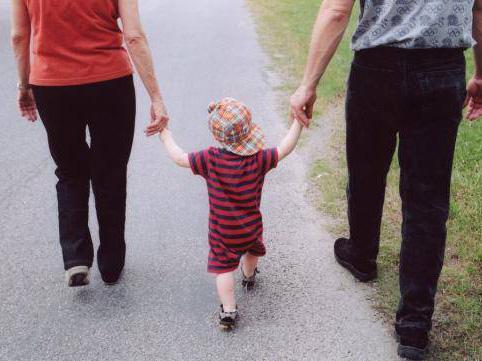Grandparents are posing serious health risks to children, scientists warn
Grandparents spoiling children with sweet treats and large helpings could be cause for concern, study indicates

Your support helps us to tell the story
From reproductive rights to climate change to Big Tech, The Independent is on the ground when the story is developing. Whether it's investigating the financials of Elon Musk's pro-Trump PAC or producing our latest documentary, 'The A Word', which shines a light on the American women fighting for reproductive rights, we know how important it is to parse out the facts from the messaging.
At such a critical moment in US history, we need reporters on the ground. Your donation allows us to keep sending journalists to speak to both sides of the story.
The Independent is trusted by Americans across the entire political spectrum. And unlike many other quality news outlets, we choose not to lock Americans out of our reporting and analysis with paywalls. We believe quality journalism should be available to everyone, paid for by those who can afford it.
Your support makes all the difference.Grandparents are a potential health hazard for children and may even increase their risk of cancer, say scientists.
They spoil their grandchildren with sweet "treats" and big helpings of fattening food, and expose their young lungs to second hand tobacco smoke, it is alleged.
The extraordinary claims are based on a review of research into the influence grandparents have on lifestyle factors that can sow the seeds of cancer in later life.
Lead author Dr Stephanie Chambers, the University of Glasgow's Public Health Sciences Unit, said: "While the results of this review are clear that behaviour such as exposure to smoking and regularly treating children increases cancer risks as children grow into adulthood, it is also clear from the evidence that these risks are unintentional.
"Currently grandparents are not the focus of public health messaging targeted at parents and in light of the evidence from this study, perhaps this is something that needs to change given the prominent role grandparents play in the lives of children."
Previous research has looked at the way parents can affect their children's susceptibility to cancer and other diseases, but less attention has been paid to the role of part-time carers such as grandparents, said the scientists.
The Glasgow team analysed data from 56 studies from 18 countries that included information about the influence of grandparents on their grandchildren.
Overall, grandparents were found to have an adverse effect - despite meaning well. In many cases, such as rewarding good behaviour with sweets, they were putting the health of their grandchildren at risk with kindness.
Smoking, poor diet, excess weight and lack of physical activity were all known to increase the risk of cancer, said the researchers.
Factors associated with long-term cancer risk were first experienced within the family setting.
Social trends, such as the growing proportion of women in the workforce, rising childcare costs, and increasing numbers of single parents, had meant that more children were being placed in the care of their grandparents.
The research found that "excessive feeding" of children was a significant grandparent problem, as was providing meals that may be made from scratch but with unhealthy ingredients.
Sweets were used to reward, express love, or strengthen the bond between grandparent and child.
There was also evidence that the poverty and hunger some grandparents experienced themselves as children led them to believe extra weight was a sign of good health.
Grandparents smoking in the home was identified as having a negative impact, both by setting a bad example and exposing children to second hand tobacco smoke.
The research found no significant evidence of grandparents influencing alcohol consumption or sun exposure.
To some extent, the negative impact on diet and weight was balanced by a more positive finding with respect to physical activity, the scientists found.
Grandparents tended to be supportive of children engaging in active pursuits, often providing them with access to the necessary space.
None of the reviewed studies took account of the positive emotional benefit of children spending time with their grandparents, the authors pointed out.
Dr Chambers added: "From the studies we looked at, it appears that parents often find it difficult to discuss the issues of passive smoking and over-treating grandchildren.
"Given that many parents now rely on grandparents for care, the mixed messages about health that children might be getting is perhaps an important discussion that needs to be had."
The findings are published in the online journal Public Library of Science ONE.
Professor Linda Bauld, from the charity Cancer Research UK which co-funded the study, said: "Children's health can be affected by range of factors, and this study reinforces the importance of the broader family picture.
"With both smoking and obesity being the two biggest preventable causes of cancer in the UK, it's important for the whole family to work together.
"Children should never be exposed to second hand smoke. But it's also important for children to maintain a healthy weight into adulthood, and in today's busy world it's often the wider family who have a role to play in keeping youngsters healthy. If healthy habits begin early in life, it's much easier to continue them as an adult."
Press Association
Join our commenting forum
Join thought-provoking conversations, follow other Independent readers and see their replies
Comments